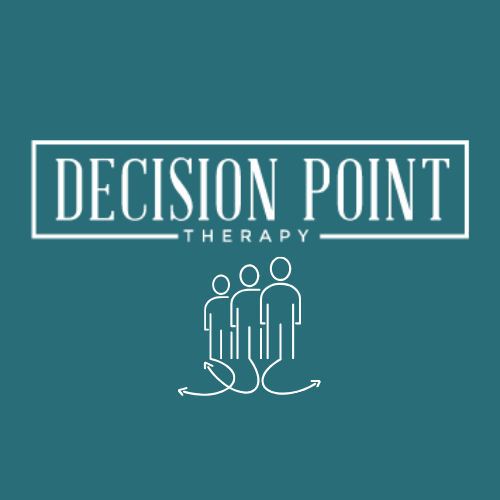Couples therapy with myself, Dr. April, is one of the best investments you can make in your relationship.
Whether you’re married or in a long-term committed relationship, you’ve come to the right place!
I specialize in helping couples with critical relationship issues and decisions including:
In addition to relationship decisions, I also help couples struggling with problems in:
I help partners take an honest look at themselves and their relationship and ultimately experience both in more positive ways.
Intimacy is being seen and known as the person you truly are.
-Amy Bloom

Photo by Jasmine Carter
FAQs About Couples Therapy
Do you treat all types of couples?
Yes. In fact, I enjoy working with a diversity of couples!
I’m LGBTQ friendly and poly friendly.
I’m also enjoy working with couples who are interracial, intercultural, and interfaith.
I strive to be accepting and respectful of couples regardless of their religious beliefs or political leanings. However, none of my therapy services are religiously-based.
How long does couples therapy last?
Couples counseling with me is flexible and designed to best meet your relationship needs. I recommend that you plan for at least 6-8 sessions, depending on your issues.
Along the way, we will evaluate your progress and determine if further therapy is needed.
Many issues can be addressed using short-term treatment (6-8 sessions). However, for most couples you should expect to complete 8-20 sessions to fully resolve your issues and experience results that actually last.
Can we attend couples therapy on a short-term basis?
Yes, but this is recommended only in certain cases.
There are a few cases in which brief therapy may be appropriate and beneficial for reaching your goals.
For example, if you and your partner are doing well in most areas of your relationship and overall very satisfied, but have a specific problem that you’d like to resolve, brief couples counseling can help.
Many of my couples have tried this form of therapy and have reached their relationship goals within 6-8 sessions.
If you’re unsure if short-term therapy can work for you, contact me for a free consultation.
Do my partner and I have to be married to do couples counseling?
Absolutely not!
Couples therapy can be beneficial whether you are in the dating stages of your relationship, newly married, or have been married for several years.
In fact, more and more couples are now seeking couples counseling in the early dating stages of their relationship to be proactive and prevent problems later in the relationship.
If you are dating or in the first 1-3 years of your marriage, now is the perfect time to build on your strengths, work on your weaknesses, and set a solid foundation for your future together.
If you and your partner have been married for several years, couples counseling can help you learn and grow from past mistakes, make peace with the past, reconnect and create healthier patterns going forward.
Can my partner and I attend couples counseling even if we never plan to marry?
Decision Point Therapy is not just for couples who are planning to marry or are currently married.
For couples who choose long-term, committed partnerships and do not opt for legal marriage, I provide a welcoming and non-judgmental space to work on your issues.
How often should we attend couples therapy sessions?
Many clients begin couples therapy on a weekly basis, and then switch to once or twice per month or “as-needed” appointments once they’ve reached their immediate goals.
I will offer recommendations for your treatment, but your number of sessions and session schedule is always up to you.
Couples therapy can be more difficult to attend regularly than individual therapy because there are two people’s schedules to take into account.
However, a big key to success is making the commitment to attend appointments regularly. At minimum, you should plan to attend sessions least twice per month in the beginning of treatment and once per week is ideal.
Some couples opt to schedule extended sessions (90 or 120 minutes) instead of standard sessions (50 minutes) to help make progress more quickly.
At a minimum, it is recommended that couples attend one 50 minute session per week, particularly in the beginning of therapy.
Please note that for first-time couples a 90 min session is required for your very first session.
What if my partner doesn't want to come to couples counseling with me?
It’s very common that one partner is adamant about starting couples counseling while the other is against it.
Handling this depends on the underlying reason behind the resistance to couples therapy.
One common reason for not wanting to attend couples counseling is a lack of knowledge about what actually happens in couples counseling.
For many people, their idea of couples therapy comes only from TV and movies. And given how it’s been portrayed in the media, I don’t blame your partner for not wanting to come!
If this is the case, more information about what real couples therapy looks like may help. Encourage your partner to be open to reading about it here, and talking with me by phone about the couples counseling process.
Also, ask if your partner is willing to attend at least one session of couples counseling.
To be clear, results cannot be achieved with just one session. But after the first session of couples counseling your partner will have a feel for how it works and can consider if it’s something they would be willing to continue.
Another common reason for resistance to couples counseling is fear that the therapy room will become just another weekly outlet to fight about the relationship problems.
Many have concerns that it’ll become a second place (outside of the house) for their partner to hurl blame and negative accusations their way. And in fairness, when couples counseling is not conducted appropriately this is exactly what happens, session after session.
Problems will need to be discussed during sessions and complaints will be brought up. But couples counseling should not be used to constantly beat your partner over the head with everything you feel they are doing wrong.
If your partner is concerned about this, validate his or her concern. And let them know that you plan to take your fair share of responsibility for the relationship problems.
Oftentimes, people are far more willing to attend couples counseling if they know that they partner will take a hard look at their own faults and work hard to make sure their needs are met as well.
If your partner is completely unwilling to attend couples counseling with you, it is possible to work on relationship problems in individual relationship therapy.



